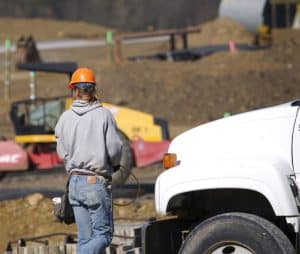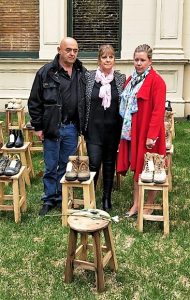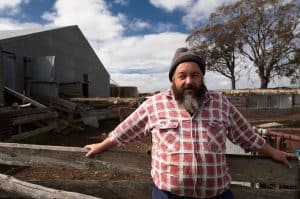 In 2015, the Australian Building and Construction Commission (ABCC) took legal action against the Construction Forestry Mining and Energy Union (CFMEU) and one of that union’s organisers, Pomare Auimatagi, over the organiser’s actions seemed to breach one of John Holland’s personal protective equipment (PPE) policies. The CFMEU and Auimatagi were found guilty of breaching the Fair Work Act and fined over A$58,000 by the Federal Circuit Court on 9 March 2018. The case raises a couple of occupational health and safety management issues.
In 2015, the Australian Building and Construction Commission (ABCC) took legal action against the Construction Forestry Mining and Energy Union (CFMEU) and one of that union’s organisers, Pomare Auimatagi, over the organiser’s actions seemed to breach one of John Holland’s personal protective equipment (PPE) policies. The CFMEU and Auimatagi were found guilty of breaching the Fair Work Act and fined over A$58,000 by the Federal Circuit Court on 9 March 2018. The case raises a couple of occupational health and safety management issues.
According to

 Today the Medical Journal of Australia released a
Today the Medical Journal of Australia released a  There seems to be a growing community frustration with regulators who hesitate to prosecute breaches of laws, including occupational health and safety (OHS) laws, and about options that sound reasonable, like
There seems to be a growing community frustration with regulators who hesitate to prosecute breaches of laws, including occupational health and safety (OHS) laws, and about options that sound reasonable, like 


 Australia’s occupational health and safety (OHS) agenda seems largely dictated by high risk industries like construction in some States and the mining sector in others. But agriculture is common to all Australia States and is consistently included in the official and unofficial workplace fatality data. New research has been released into serious farm injuries and which voices are the most effective in improving the situation.
Australia’s occupational health and safety (OHS) agenda seems largely dictated by high risk industries like construction in some States and the mining sector in others. But agriculture is common to all Australia States and is consistently included in the official and unofficial workplace fatality data. New research has been released into serious farm injuries and which voices are the most effective in improving the situation.